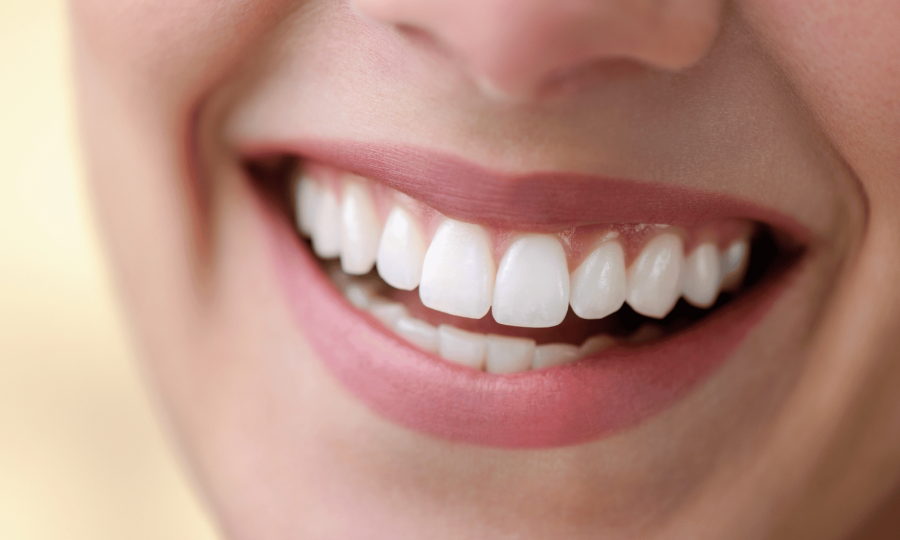Can You Whiten Veneers?
Porcelain veneers can be a great cosmetic dentistry treatment for improving your smile. But veneers can become discoloured, just like your natural teeth. Unfortunately, veneers don’t typically respond to whitening treatment very well. With that said, preventive dental checkups and cleanings may help remove some surface stains that haven’t penetrated very far into the porcelain.
Taking good care of your veneers and trying to prevent discolouration is ideal. But if discolouration appears, you may be able to replace your veneers when you’re no longer happy with their appearance.
What Are Veneers?
Veneers are thin, custom-made shells that a dentist can attach to your teeth. They are typically made from porcelain or a composite resin material—with porcelain often being the preferred type of veneer.
Dental veneers can support the health and appearance of your smile when used to address cracks, stains, and other forms of minor damage or imperfections. They aren’t a one-size-fits-all treatment, though.
Tooth decay and periodontal conditions must be treated before a veneer can be applied, and your tooth needs to have a reasonable amount of enamel left to attach the veneer to.
Types of Veneers
2 common types of veneers are porcelain and composite resin.
Porcelain veneers may last longer and more closely match the natural tooth. It usually takes at least 2 appointments to get porcelain veneers because they are custom-made every time.
A composite veneer can still be a great option, and they are often completed in 1 appointment. We can help you determine which type is right for you.
How Do Veneers Get Discoloured?
Veneers are typically expected to last from 10–15 years. And even though they may not necessarily stain as easily as your natural teeth, they aren’t impervious to discolouration.
Inadequate brushing and flossing could lead to discolouration if food and other debris aren’t removed from your surrounding teeth, but a major reason veneers might become discoloured could be repeated exposure to brightly coloured food and drinks, such as tea, coffee, wine, or food colouring in foods.
When a dentist attaches a veneer, it’s typically under the gum line, but a receding gum line can also cause some undesirable discolouration because a brown line may appear where the edge of the veneer meets the natural tooth.
Another form of discoloration could be from the tooth beneath the veneer. Some veneers are very thin. If the tooth beneath a thin veneer becomes discoloured from anything like dental trauma, age, or genetics, it could cause the veneer to appear discoloured.
Can You Whiten Veneers?
You can’t typically whiten veneers because they don’t respond to whitening treatments the same way that a natural tooth does. But if the discolouration is simply the result of a buildup of surface stains, professional dental cleaning may help remove any that have not set deeply into the veneer material.
Veneer Replacement
Most veneers are considered permanent because they cannot be reversed. But it’s important to note that they will eventually need replacing.
Many veneers can last anywhere from 10–15 years before they need to be replaced. However, your dentist may recommend that you replace your veneers if you’re unhappy with their discolouration or if they are beginning to show signs of wear.
Caring for Your Veneers
It’s important to take care of your veneers to protect the teeth beneath them and throughout your mouth—in addition to preventing discolouration.
Brushing at least twice daily and flossing at least once, according to the Canadian Dental Association’s recommendations, is one of the best things you can do to prevent tooth decay, gum disease, and teeth discolouration.
Some other habits to keep in mind when caring for your veneers include the following:
- Don’t use your teeth to open packaging or tear plastic
- Avoid chewing hard objects like pens, ice, or fingernails
- Don’t chew with your front teeth that have the veneers
- Get a splint or retainer if you grind your teeth at night
- Wear a mouthguard while playing sports
Discuss Your Options with Your Dentist
It’s important to take good care of your veneers even though they may not darken or discolour as quickly as your natural teeth. Without routine care and healthy oral hygiene, non-cosmetic problems like cavities and tooth decay can begin developing near veneers even though the veneers themselves are cosmetic.
Taking care of your mouth starts at home with your brushing and flossing habits and the food and drinks you consume, but seeing your dentist regularly for dental exams and cleanings is an important part of good oral health too.
Give us a call at South Bolton Dental Centre to schedule an appointment. Our experienced dentists can provide you with expert advice and care—whether you’re wondering how to whiten your smile or you’ve noticed a potential cavity starting.









